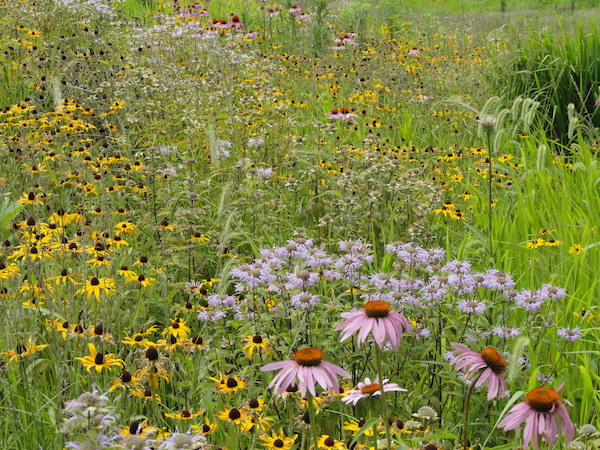
Agriculture Secretary Tom Vilsack announced recently that agricultural producers and private landowners can begin applying for the Conservation Reserve Program (CRP) General signup starting February 27 through April 7, 2023.
What is the CRP?
The Conservation Reserve Program (CRP) is a voluntary program offered by the U.S. Department of Agriculture (USDA) that helps agricultural producers and private landowners conserve and improve soil, water, and wildlife resources. The program provides financial incentives to landowners who convert highly erodible cropland or other environmentally sensitive acreage to vegetative cover, such as native grasses, trees, or wetlands. In exchange, the landowner receives an annual rental payment and cost-share assistance to establish the vegetation cover.
The CRP has been around since 1985, and it has had a significant impact on conserving and improving our natural resources. According to the USDA, since the program’s inception, more than 23 million acres of environmentally sensitive land have been enrolled in the program.
General CRP
The General CRP is a program that enables producers and landowners to establish long-term, plant species that conserve resources, including approved grasses or trees, on cropland to manage soil erosion, improve water quality and enhance wildlife habitat. The General CRP also includes a Climate-Smart Practice Incentive that can help producers and landowners establish permanent grasses and trees, restore wetlands, and enhance wildlife habitat to increase carbon sequestration and reduce greenhouse gas emissions.
Continuous CRP
Under Continuous CRP, producers and landowners can enroll in CRP throughout the year, provided they meet the eligibility requirements, and the enrollment levels do not exceed the statutory cap. Additionally, the Climate-Smart Practice Incentive is also available in the Continuous signup. FSA provides additional enrollment opportunities within Continuous CRP, such as the CLEAR30 Initiative, SAFE Initiative, FWP, and CREP.
The USDA has made significant improvements to CREP to make the program more accessible to a wide range of producers and new partners. In addition, FSA moved SAFE practices back to the Continuous CRP signup, giving producers and landowners more opportunities to participate in the initiative. For the first time as well, three Tribal Nations are now partnering with the USDA through CREP to conserve, maintain, and improve grassland productivity, reduce soil erosion, and enhance wildlife habitat.
How can the CRP help address climate change?
The CRP is a critical tool in the effort to address climate change. By enrolling environmentally sensitive land in the program and converting it to vegetative cover, landowners can help sequester carbon from the atmosphere, reduce soil erosion, improve soil health, and improve water quality. These efforts can help mitigate the impacts of climate change while also promoting the long-term well-being of the land.
According to the USDA, CRP lands can sequester up to 10 tons of carbon per acre per year. This is a significant amount, considering that agriculture and forestry combined account for about 10% of U.S. greenhouse gas emissions. By enrolling in the CRP, landowners can help offset some of these emissions and contribute to a more sustainable future.
Why should you consider enrolling in the CRP?
Enrolling in the CRP is a win-win for both the landowner and the environment. Landowners receive an annual rental payment and cost-share assistance to establish the vegetative cover, which can provide a stable source of income while also helping improve the long-term health of their land. Additionally, land enrolled in the CRP is not available for agricultural production, which can help reduce the risk of overproduction and help stabilize commodity prices.
How to apply for the CRP
If you are considering enrolling in the CRP, you can reach out to FDCE. The enrollment period will be open from February 27th until April 7th, 2023.
Since 2003, FDCE has been providing comprehensive CRP solutions, which includes helping private landowners with documentation and establishment. With our extensive knowledge in this area, we can help you through the process of starting your project successfully.
Our team of experienced staff can also offer management services and assistance with special projects such as bioenergy or pollinator initiatives. All Native Seed, our sister company, provides high-quality, CRP-approved seed mixes as well.
